February 28 stands as one of history’s most eventful days, witnessing the rise and fall of empires, groundbreaking discoveries, and moments that shaped our modern world across centuries of human achievement.

Politics and Government Events on February 28
1922 – United Kingdom Ends Egyptian Protectorate
The British Empire formally terminated its protectorate over Egypt through a Unilateral Declaration of Independence on this pivotal date. This momentous decision marked the end of four decades of British administrative control over the ancient land.
The declaration represented a significant shift in British colonial policy in the Middle East. Egypt’s newfound independence would reshape regional power dynamics and influence future decolonization movements across the British Empire.
1947 – February 28 Incident in Taiwan

Civil disorder erupted across Taiwan as tensions between local Taiwanese and mainland Chinese authorities reached a breaking point. Government forces responded with overwhelming violence, resulting in an estimated 18,000 to 28,000 civilian deaths.
This tragic event became known as the White Terror and remained a taboo subject for decades. The incident fundamentally altered Taiwan’s political landscape and continues to influence cross-strait relations today.
1974 – British Election Results in Hung Parliament
The British general election concluded without a clear majority, creating a hung parliament after Jeremy Thorpe’s Liberal Party achieved their strongest showing since 1929. The result reflected growing voter dissatisfaction with traditional two-party politics.
Neither Labour nor Conservative parties secured enough seats to govern alone. This electoral outcome would lead to political instability and ultimately contribute to significant changes in British governance.
1997 – Turkish Military Memorandum
The Turkish military issued a memorandum that directly resulted in the collapse of the ruling coalition government. This intervention demonstrated the continued influence of military leadership in Turkish political affairs.
The memorandum marked another chapter in Turkey’s complex civil-military relations. The event highlighted ongoing tensions between secular military establishment and civilian political leadership.
2013 – Pope Benedict XVI Resigns

Pope Benedict XVI officially resigned from the papacy, becoming the first pontiff to step down since Pope Gregory XII in 1415. His unprecedented decision shocked the Catholic world and marked the end of an eight-year papal reign.
The resignation cited declining health and energy as primary reasons for the historic step. Benedict’s departure paved the way for the election of Pope Francis and signaled a new era for the Catholic Church.
Military and Naval History on February 28
1948 – Accra Riots in Gold Coast
Ex-servicemen of the Gold Coast Regiment marched toward the colonial government seat at Christiansborg Castle, where Superintendent Colin Imray ordered troops to open fire. The violence killed Sergeant Adjetey, Corporal Attipoe, and Private Odartey Lamptey.
The shootings sparked widespread riots across the Gold Coast and led to the arrest of the Big Six independence leaders. These events accelerated the decolonization process and contributed directly to Ghana’s eventual independence.
1985 – IRA Mortar Attack on Newry
The Provisional Irish Republican Army executed a devastating mortar attack against the Royal Ulster Constabulary police station in Newry. The assault killed nine officers in one of the deadliest single attacks on security forces during the Troubles.
The attack demonstrated the IRA’s increasing tactical sophistication and ability to strike heavily fortified targets. The Newry incident intensified security concerns and influenced subsequent peace negotiations in Northern Ireland.
1986 – Assassination of Olof Palme
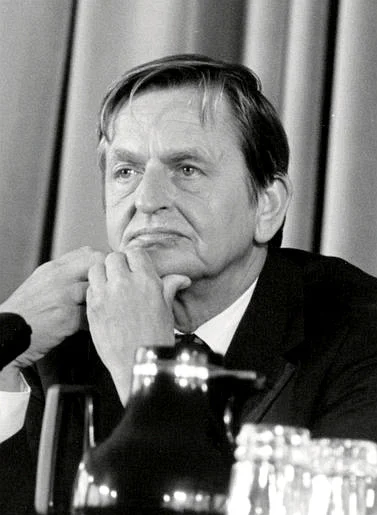
Swedish Prime Minister Olof Palme was assassinated while walking home from a cinema in Stockholm with his wife. The shocking murder of the 26th Prime Minister occurred without bodyguard protection, stunning the nation.
Palme’s death marked the end of Sweden’s era of political innocence and security. The case remained unsolved for decades, becoming one of the most notorious unsolved crimes in Swedish history.
Science and Discovery Milestones on February 28
1959 – Discoverer 1 Satellite Launch

The United States launched Discoverer 1, an ambitious spy satellite designed to achieve the world’s first polar orbit. Despite its groundbreaking mission profile, the satellite failed to reach its intended orbit.
The launch represented a crucial step in America’s space reconnaissance program during the Cold War. Although unsuccessful, Discoverer 1 provided valuable data for subsequent satellite missions and space exploration efforts.
1990 – Space Shuttle Atlantis Launch
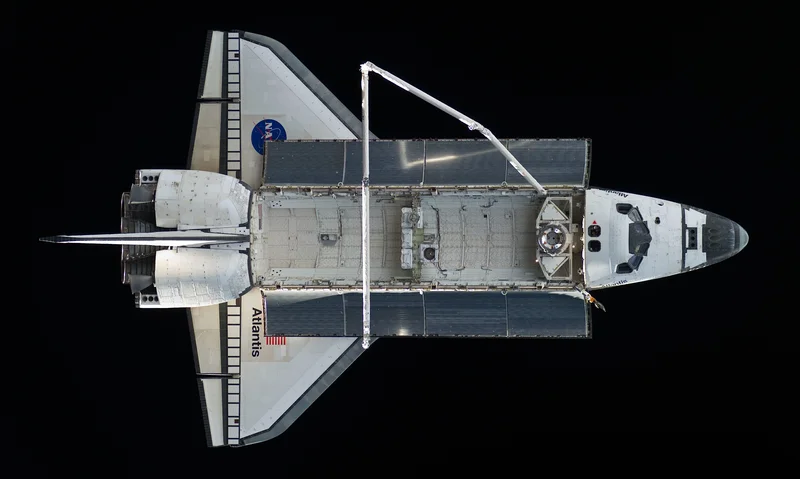
Space Shuttle Atlantis launched successfully on mission STS-36, carrying a classified Department of Defense payload into orbit. The mission demonstrated NASA’s continued capability to support national security objectives through space operations.
The classified nature of the payload reflected the military’s growing reliance on space-based assets. Atlantis completed its mission successfully, contributing to America’s strategic space capabilities during the final years of the Cold War.
2024 – India’s Second Spaceport Inaugurated
Prime Minister Modi officially inaugurated India’s second spaceport at Kulasekarapattinam, marking a significant milestone in the country’s space program expansion. The new facility enhances India’s satellite launch capabilities and commercial space ventures.
The spaceport represents India’s growing ambitions in the global space economy. This strategic infrastructure development positions India as a major player in commercial satellite launches and space exploration.
Cultural and Arts Events on February 28
1983 – M*A*S*H Series Finale
The final episode of the beloved television series M*A*S*H aired to an unprecedented audience of almost 110 million viewers. The two-and-a-half-hour farewell episode became the most-watched television program in American history.
The series finale marked the end of an era for American television entertainment. M*A*S*H’s blend of comedy and drama about the Korean War had captivated audiences for eleven seasons and influenced television storytelling for generations.
1969 – Portugal Earthquake

A powerful earthquake struck Portugal, Spain, and Morocco, causing significant damage across the Iberian Peninsula and North Africa. The seismic event highlighted the region’s vulnerability to geological disasters.
The earthquake prompted improvements in building codes and emergency response systems. Scientific study of the event contributed to better understanding of seismic activity in the Atlantic-Mediterranean region.
1925 – Charlevoix-Kamouraska Earthquake

A significant earthquake struck northeastern North America, affecting the Charlevoix-Kamouraska region of Quebec. The seismic event caused considerable damage to buildings and infrastructure across the sparsely populated area.
The earthquake provided valuable scientific data about seismic activity in the St. Lawrence River valley. This geological event contributed to improved understanding of earthquake risks in eastern Canada.
Religious and Social Events on February 28
1993 – Branch Davidian Raid in Waco
Bureau of Alcohol, Tobacco and Firearms agents raided the Branch Davidian compound in Waco, Texas, with a warrant to arrest leader David Koresh. The raid triggered a violent confrontation that began a 51-day standoff.
The initial raid resulted in casualties on both sides and escalated into a national crisis. The Waco standoff became a defining moment in discussions about religious freedom, government authority, and law enforcement tactics.
2002 – Gujarat Religious Violence

Religious violence erupted in Gujarat, India, resulting in two major massacres that killed 166 people. The Naroda Patiya massacre claimed 97 lives while the Gulbarg Society massacre killed 69 individuals.
These tragic events highlighted deep-seated religious tensions in Indian society. The violence prompted extensive legal proceedings and continue to influence interfaith relations and political discourse in India.
2001 – Nisqually Earthquake

A magnitude 6.8 earthquake struck the southern Puget Sound region, causing significant damage throughout the Seattle metropolitan area. The Nisqually earthquake tested the region’s emergency preparedness and building codes.
The earthquake caused extensive property damage but relatively few casualties due to improved construction standards. The event spurred further improvements in seismic safety measures across the Pacific Northwest.
Business and Economic Events on February 28
1966 – NASA T-38 Crash at McDonnell Aircraft
A NASA T-38 Talon crashed into the McDonnell Aircraft factory during a poor-visibility landing attempt at Lambert Field, St. Louis. The tragic accident killed astronauts Elliot See and Charles Bassett.
The crash occurred at a critical facility in America’s space program supply chain. McDonnell Aircraft manufactured spacecraft components essential to NASA’s Gemini and Apollo missions, making the incident particularly significant.
1975 – Moorgate Tube Disaster

A London Underground train failed to stop at Moorgate terminus station and crashed into the tunnel wall, killing 43 people. The disaster remains one of the deadliest accidents in London Transport history.
The crash prompted extensive safety improvements across London’s underground network. Investigation revealed the need for better automated safety systems and emergency response procedures in confined underground spaces.
1997 – Northern Iran Earthquake

A devastating earthquake struck northern Iran, killing approximately 1,100 people and causing widespread destruction. The disaster highlighted the region’s vulnerability to seismic activity and inadequate building standards.
The earthquake prompted international humanitarian aid and sparked discussions about earthquake preparedness in seismically active regions. The tragedy led to improved building codes and emergency response systems in Iran.
Transportation and Infrastructure on February 28
1974 – Kentucky School Bus Tragedy
A school bus in Floyd County, Kentucky, collided with a wrecker truck and plunged into the rain-swollen Levisa Fork river. The devastating accident killed the driver and 26 children in one of America’s worst school bus disasters.
The tragedy prompted nationwide improvements in school bus safety standards and emergency procedures. The incident led to enhanced training for school bus drivers and better safety equipment requirements.
1973 – Aeroflot Flight X-167 Crash

Aeroflot Flight X-167 crashed during takeoff from Semey Airport in Kazakhstan, killing all 32 people aboard. The accident highlighted safety concerns in Soviet aviation during the Cold War era.
The crash prompted investigations into Soviet aviation safety standards and procedures. The tragedy contributed to gradual improvements in aircraft maintenance and pilot training within the Soviet airline system.
2023 – Greek Train Collision
Two trains collided south of the Vale of Tempe in Greece, resulting in at least 57 deaths with 58 people missing and 85 injured. The disaster became one of Greece’s worst railway accidents in modern history.
The collision exposed serious deficiencies in Greek railway safety systems and infrastructure maintenance. The tragedy prompted calls for major improvements in rail safety protocols and signaling systems.
Sports and Recreation on February 28
1940 – Mario Andretti Born

Italian-American racing driver Mario Andretti was born in Montona, Italy. His family would later emigrate to the United States, where he would become one of motorsport’s most celebrated champions.
Andretti’s racing career would span multiple decades and various racing series. He remains the only driver to win the Indianapolis 500, Daytona 500, and Formula One World Championship.
1965 – Paulo Futre Born

Portuguese footballer Paulo Futre was born in Montijo, Portugal. He would develop into one of Portugal’s most skilled and creative attacking midfielders during the 1980s and 1990s.
Futre’s career included successful stints with FC Porto, Atlético Madrid, and AC Milan. His technical ability and flair made him a fan favorite and one of Portugal’s most gifted players.
1988 – Aroldis Chapman Born

Cuban baseball player Aroldis Chapman was born in Holguin, Cuba. He would later defect to the United States and become one of Major League Baseball’s most dominant relief pitchers.
Chapman’s fastball regularly exceeds 100 mph, making him one of the hardest-throwing pitchers in baseball history. His success opened doors for other Cuban players seeking to play in Major League Baseball.
Notable Births on February 28
1901 – Linus Pauling Born
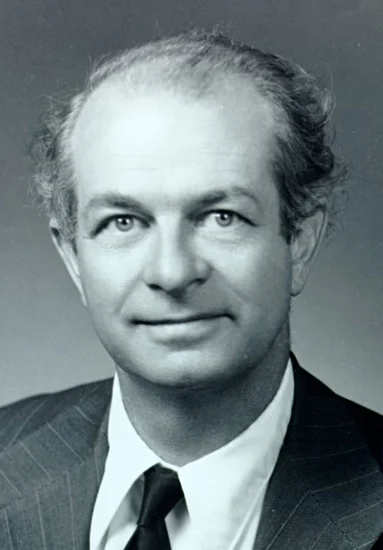
American chemist and activist Linus Pauling was born in Portland, Oregon. His brilliant scientific mind would revolutionize understanding of chemical bonding and molecular structure.
Pauling became the only person to win two unshared Nobel Prizes, receiving recognition for both Chemistry and Peace. His work on vitamin C research and nuclear disarmament advocacy made him a controversial yet influential figure.
1929 – Frank Gehry Born
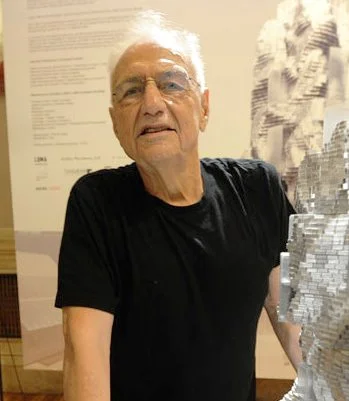
Canadian-American architect Frank Gehry was born in Toronto, Ontario. His innovative and unconventional designs would transform modern architecture and urban landscapes worldwide.
Gehry’s deconstructivist style created iconic buildings like the Guggenheim Museum Bilbao and Walt Disney Concert Hall. His revolutionary approach to architectural design earned him the Pritzker Prize and international acclaim.
1948 – Steven Chu Born

American physicist Steven Chu was born in St. Louis, Missouri. His groundbreaking research in laser physics and atomic trapping would earn him the Nobel Prize in Physics.
Chu later served as the 12th United States Secretary of Energy under President Barack Obama. His work bridged fundamental physics research with practical applications in energy policy and climate change.
1955 – Paul Krugman Born

American economist Paul Krugman was born in Albany, New York. His contributions to international trade theory and economic geography would reshape modern economic thinking.
Krugman received the Nobel Prize in Economics for his analysis of trade patterns and economic activity. His popular writing and commentary made complex economic concepts accessible to general audiences.
1999 – Luka Dončić Born
Slovenian basketball player Luka Dončić was born in Ljubljana, Slovenia. His exceptional court vision and basketball IQ would make him one of Europe’s most promising young talents.
Dončić’s success in European basketball led to NBA stardom with the Dallas Mavericks. His versatility and clutch performances established him as one of basketball’s brightest young stars.
Notable Deaths on February 28
1936 – Charles Nicolle Dies
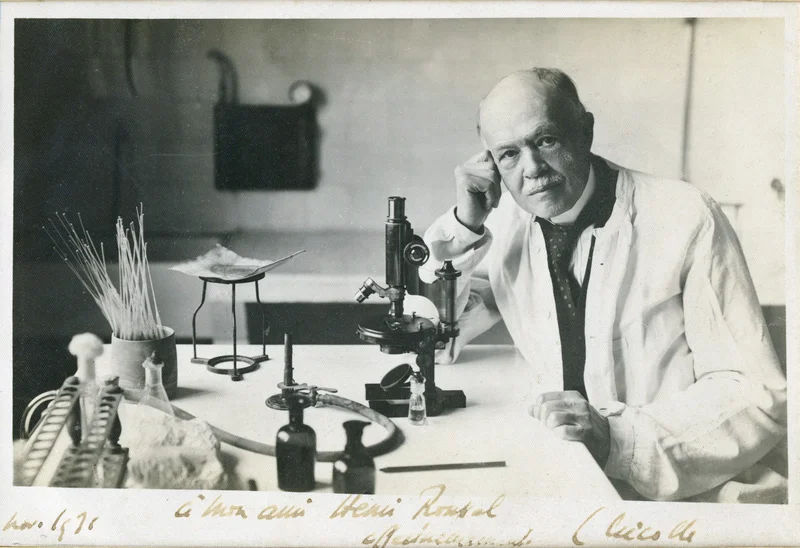
French biologist and academic Charles Nicolle died in Tunis, Tunisia. His groundbreaking research on typhus transmission earned him the Nobel Prize in Physiology or Medicine in 1928.
Nicolle’s work proved that body lice transmitted typhus between humans, leading to effective prevention strategies. His research saved countless lives and advanced understanding of infectious disease transmission.
1966 – Charles Bassett Dies

American astronaut Charles Bassett died in a plane crash while attempting to land at Lambert Field in St. Louis. The NASA T-38 Talon crash also killed fellow astronaut Elliot See.
Bassett was selected as part of NASA’s third group of astronauts and was training for the Gemini program. His death represented a significant loss to America’s space program during the critical Gemini era.
2020 – Freeman Dyson Dies

British-American physicist and mathematician Freeman Dyson died in Princeton, New Jersey. His theoretical contributions spanned quantum electrodynamics, solid-state physics, and astronomy.
Dyson’s work on the Dyson sphere concept and his contributions to quantum field theory influenced generations of physicists. His interdisciplinary approach bridged pure mathematics, theoretical physics, and practical engineering.
2020 – Joe Coulombe Dies

American businessman Joe Coulombe died in Pasadena, California. He founded Trader Joe’s grocery chain, revolutionizing specialty food retail in the United States.
Coulombe’s innovative approach to grocery retail emphasized unique products, friendly service, and affordable prices. His vision transformed Trader Joe’s from a small California chain into a beloved national retailer.
Holidays and Observances on February 28
Kalevala Day in Finland
Finland celebrates Kalevala Day, also known as Finnish Culture Day, honoring the country’s national epic poem. The Kalevala compiled traditional Finnish folk poetry into a cohesive narrative celebrating Finnish mythology and culture.
The day promotes Finnish language, literature, and cultural heritage. Schools and cultural institutions organize special programs highlighting Finland’s rich literary traditions and national identity.
National Science Day in India
India observes National Science Day commemorating the discovery of the Raman Effect by physicist C.V. Raman. The day celebrates scientific achievements and promotes scientific temper among citizens.
Educational institutions organize science exhibitions, seminars, and competitions to inspire young minds. The observance emphasizes India’s contributions to global scientific knowledge and encourages scientific research.
Peace Memorial Day in Taiwan
Taiwan observes Peace Memorial Day remembering the victims of the February 28 Incident of 1947. The day honors those who died during the tragic confrontation between Taiwanese civilians and Chinese authorities.
The memorial serves as a reminder of the importance of democracy, human rights, and peaceful resolution of conflicts. Educational programs and commemorative ceremonies promote understanding of Taiwan’s complex history.
Andalusia Day in Spain
The autonomous community of Andalusia in southern Spain celebrates its regional day with cultural festivities and traditional events. The day celebrates Andalusian culture, history, and achievements.
Local governments organize cultural performances, exhibitions, and educational activities. The celebration promotes Andalusian identity while strengthening connections to broader Spanish and European culture.
